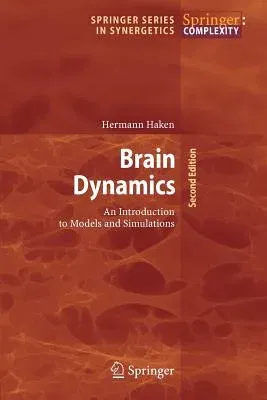Hermann Haken
(Author)Brain Dynamics: An Introduction to Models and SimulationsPaperback, 23 November 2010

Qty
1
Turbo
Ships in 2 - 3 days
In Stock
Free Delivery
Cash on Delivery
15 Days
Free Returns
Secure Checkout
Part of Series
Springer Synergetics
Part of Series
Springer Series in Synergetics
Print Length
333 pages
Language
English
Publisher
Springer
Date Published
23 Nov 2010
ISBN-10
3642094503
ISBN-13
9783642094507
Description
Product Details
Author:
Book Format:
Paperback
Country of Origin:
NL
Date Published:
23 November 2010
Dimensions:
23.39 x
15.6 x
1.83 cm
ISBN-10:
3642094503
ISBN-13:
9783642094507
Language:
English
Location:
Berlin, Heidelberg
Pages:
333
Publisher:
Weight:
485.34 gm

